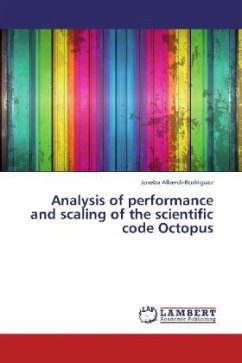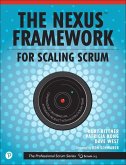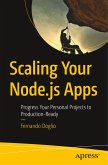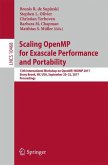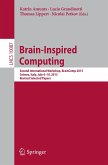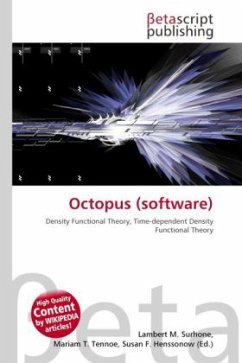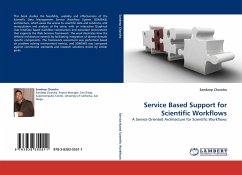This project analyses the current state of the parallelization of the scientific code Octopus. Octopus is a complex application that calculates atomic properties of the matter. More specifically, we have applied Octopus to simulate the absorption of the light in different splits of the chlorophyll molecule with different number of atoms. We have analysed the scalability of the parallel version of Octopus, varying the number of processors and the size of the atomic systems under analysis. For this study, we have used the most advanced supercomputers in Europe: Jugene and MareNostrum. This project has shown that the current version of Octopus fairly scales up to 4000-8000 cores, but new obstacles emerge when we try to surpass this limit. Our analysis has identified such problems, and several solutions, now under development, are presented.This master thesis is the first step of a more general project, aimed to offer scientists an application that could be run efficiently using hundreds of thousands of processors, the only way to obtain atomic properties of realistic size systems in a reasonable bounded time.
Bitte wählen Sie Ihr Anliegen aus.
Rechnungen
Retourenschein anfordern
Bestellstatus
Storno

